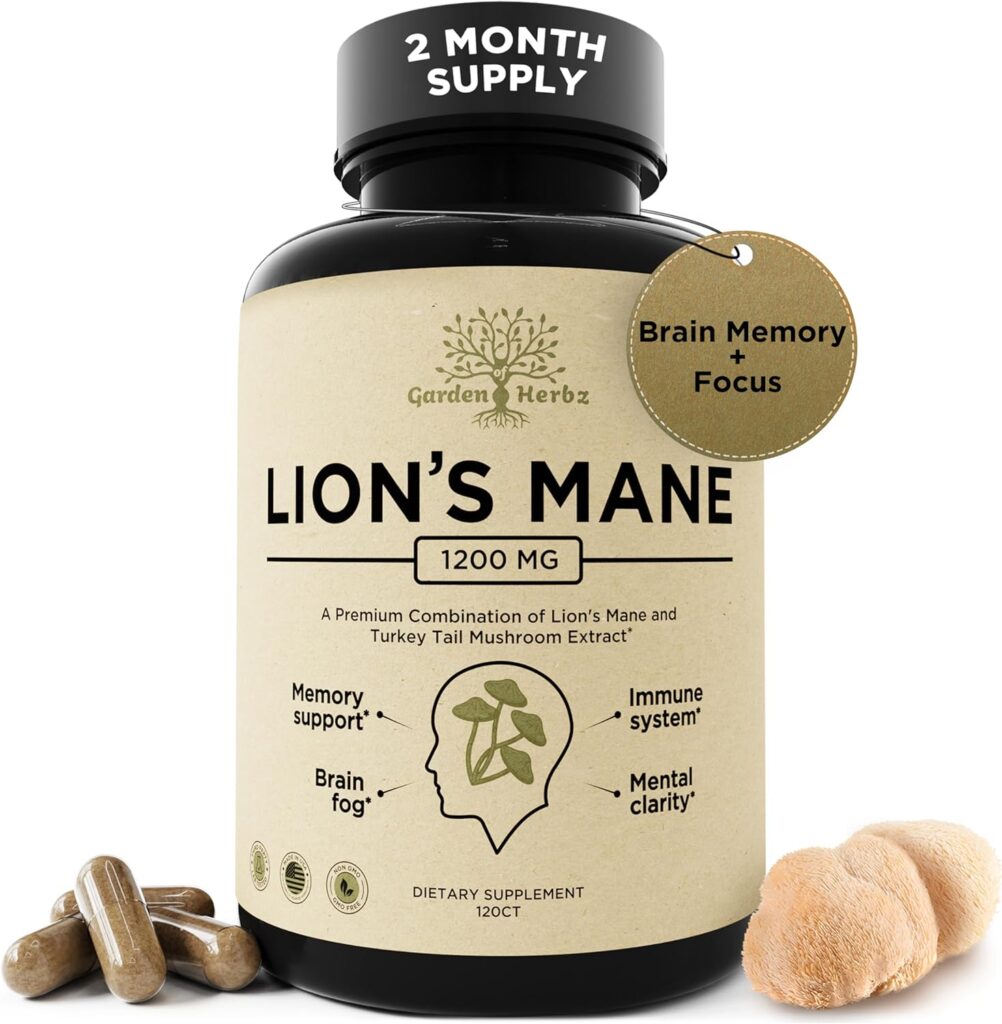Mental fog, also called brain fog, is that frustrating feeling of confusion, lack of focus, and forgetfulness.
It can make even the simplest tasks feel overwhelming and slow your productivity, leaving you wondering why your mind feels so “cloudy.”
Fortunately, there are natural ways to support mental clarity and get your brain firing on all cylinders.
In this post, we will explore 5 ways to ease mental fog, starting with its causes.
Let’s dive in!
What Causes Mental Fog?
Mental fog can be caused by a variety of factors, ranging from lifestyle to nutrition.
Poor sleep, stress, and overworking your brain can all contribute to mental fatigue.
Nutritional deficiencies, hormonal imbalances, dehydration, and inflammation can also impact cognitive function.
Even your environment, like being overstimulated by constant notifications or noise, can worsen brain fog.
Identifying the root cause is the first step to clearing the haze and regaining focus.
5 Ways to Ease Mental Fog
1. Take a Lion’s Mane Supplement
Lion’s Mane mushroom has been used for centuries for its cognitive and restorative benefits.
This powerful nootropic supports nerve growth factor (NGF) in the brain, which is essential for neural health and memory.
Taking a high-quality Lion’s Mane supplement may help improve focus, memory, and mental clarity, giving your brain the edge it needs to perform at its best.
And out of all of the Lion’s Mane supplements I’ve tried, Garden of Herbz’s Lion’s Mane is my personal favorite.
Garden of Herbz Lion’s Mane is a potent, vegan-friendly supplement designed to support cognitive clarity and focus.
Each serving provides 1000mg highly absorbable Lion’s Mane extract that may improve memory, nerve function, and mental sharpness.
Simply take 2 capsules per day and you’re good to go!
2. Prioritize Quality Sleep
Sleep is the foundation of cognitive health.
Without proper rest, your brain struggles to consolidate memories and process information efficiently.
Establish a consistent bedtime routine, limit screens before bed, and create a calm sleep environment to help your brain recharge.
Even a small improvement in sleep quality can dramatically reduce feelings of mental fog.
3. Stay Hydrated
Dehydration can cause cognitive decline, poor concentration, and fatigue.
Drinking enough water throughout the day ensures your brain receives the nutrients it needs to function optimally.
Adding hydrating foods like fruits and vegetables to your diet can further support mental clarity.
4. Reduce Stress with Mindfulness
High stress levels release cortisol, a hormone that can interfere with memory, focus, and overall cognitive function.
Practicing mindfulness techniques, such as meditation, deep breathing, or journaling, can help lower stress and improve mental clarity.
Even a few minutes a day can help your brain “reset” and regain focus.
5. Move Your Body
Exercise isn’t just for physical health.
It also improves blood flow and oxygen delivery to the brain.
Cardiovascular activity, yoga, or even short walks can stimulate neural activity, enhance mood, and boost energy levels.
Regular movement supports brain health and helps clear away the mental cobwebs that contribute to fog.
Ease Mental Fog
Mental fog can be frustrating, but it doesn’t have to control your life.
By supporting your brain with nutrients like Lion’s Mane, getting restorative sleep, staying hydrated, managing stress, and keeping your body moving, you can boost mental clarity and reclaim your focus.
Start incorporating these strategies today and experience a sharper, more energized mind.
Thank you for reading!
Affiliate Disclosure
Some of the links on this site are affiliate links. This means that if you click on the link and purchase the item, we may receive an affiliate commission at no extra cost to you. I only recommend products or services that I believe will add value to my readers, however, some (not all) do pay us to be on this blog. Your support and theirs help keep this blog running, and I genuinely appreciate it.
Medical Disclaimer
The information provided on this website is for educational purposes only and is not intended as medical advice. This blog or the writer is not a licensed healthcare professional, and the content should not be used as a substitute for professional medical diagnosis, treatment, or advice. Always consult with your physician or other qualified healthcare provider before starting any new treatment or making any changes to your healthcare routine.
